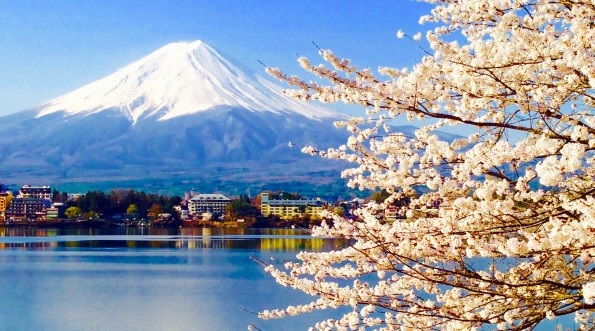These thoughts were front and centre at the Water, Gender, and Poverty session at the 4th Asia Pacific Water Summit (APWS) in Kumamoto Japan, on April 23, 2022.This is the second time that the APWS held a dedicated gender session.The session was convened by GWP’s Liza Debevec,Senior Gender and Social Inclusion Specialist,and the University of Tokyo’s Akiyuki Kawasaki.
The keynote speaker, GWP South Asia Regional Chair Kusum Athukorala,challenged participants to step up their game in view of the fast-approaching 2030 deadline to reach the SDG goals on gender and equality in the water sector and beyond.
The session brought together researchers and development practitioners from Australia, India, Indonesia, Japan, Myanmar, Sri Lanka, Tajikistan, and Uzbekistan, both from GWP regional and country teams, and partner organisations, including University of Peradeniya, International Water Management Institute (IWMI), University of Technology Sydney, HelvetasSwiss Intercooperation, Safe Water Network India,and University of Tokyo, Myanmar Directorate of Water Resources and Improvement of River Systems (DWIR) and Zako Golden to Global NGO in Uzbekistan.
The respective presentations from Risa Nakamura and Gouri de Silva highlighted the importance of understanding how natural disasters impact the livelihoods of the most poor and vulnerable populations, and stressed the need to ensure that scientific results not only influence the policy making but that this is done in a way that is pro-poor.
Poonam Sewak and Veena Khanduri presented a joint project between Safe water network India andthe GWP India Country Water Partnership that aimed to promote women entrepreneurs through water ATMs in low-income communities for safe water access.
ShohidaTulieva spoke about an initiative to increase women’s participation in decision-making processes in the IWRM processes in the transboundary SyrdaryaBasin in Central Asia.
Sanjiv de Silva of IWMI presented research on why social inclusion matters when it comes to climate insurance and highlighted both its benefits and the challenges of the inclusive approach to climate insurance.
Finally, the presentation by Jess McArthur addressed the importance of adopting gender transformative approaches in WASH implementation projects and related challenges.
In the panel discussion, moderated by Liza Debevec, four panelists addressed important issues at the interface of gender and poverty in the water sector.
Guljamal Nurmuhammedova, Regional Coordinator of GWP Caucasus and Central Asia (GWP CACENA) reminded the participants that Central Asia and Caucasus are two sub-regions that had fully equitable and inclusive access to water until the collapse of the Soviet Union. From the 1990s, Caucasus countries adopted European values, but Central Asia turned back to a male dominated mentality in terms of governance.She stressed the need to ensure equal access for women to all natural and other resources: water is only of them. In her opinion, the promotion of gender equality in water management requires ensuring equity in education and career development for women. She concluded that efforts need to be stronger in those countries where gender equality is traditionally not considered a priority.
Sardor Erjigitov, founder of Zako Golden to Global, a non-governmental educational institution in Uzbekistan, acknowledged the water-related issues of his country during his studies in the water field. He experienced low quality education, outdated contents, lack of qualified teaching staff, and lack of financial support.Erjigitov talked about how low-level salaries in the water sector make young water professionals with potential move abroad or to other sectors. The goal of his NGO is to help students have a deep understanding of water issues in Uzbekistan and the rest of the world.
Overall, the session stressed the importance of political will to advance gender equality and reduce poverty; the need for gender analysis and integration of gender into biophysical research; and the use of scientific findings to ensure policies are gender responsive and socially inclusive.
Rahmah Elfithri, Deputy Regional Coordinator of GWP Southeast Asia (GWPSEA), emphasized the need to include women in the overall planning and policy framework to ensure better addressing of water-related issues. She stressed the key role of community level involvement to improve water management and cited the contribution of gender mainstreaming workshops inSoutheastAsia.
Aung Myo Khaing, from the Directorate of Water Resources and Improvement of River Systems (DWIR)in Myanmar, is involved in water-related disaster risk-reduction, including flood and cyclone risk reduction. He spoke about how disaster risk-reduction requires the involvement of multiple departments including the Environment Conservation Department, Department of Forest, Department of Water Utilization, and the Department of Mining. He made several recommendations for mitigating water-related disasters such as conducting technical research, public awareness programs, maintaining drainage systems, advancing weather forecast facility, and including law enforcement in decision-making.
Based on the presentations and panel discussion, the session convenors formulated gender and poverty related messages on finance, governance, and science and technology aspects of the work and presented those to the Summit. These messages were aligned with the GWP Gender Action Areas and stressed the importance of political will (including gender in budgetary planning) to advance gender equality and reduce poverty; the need for gender analysis and integration of gender into biophysical research, andtheuse of scientific findings to ensure policies are gender responsive and socially inclusive.
Gender equality and poverty reduction are important for the wellbeing of the populations in the Asia Pacific region and for the sustainability of water resources. We hope that future APWS and governments will give even greater prominence to the topic that concerns every one of us.

